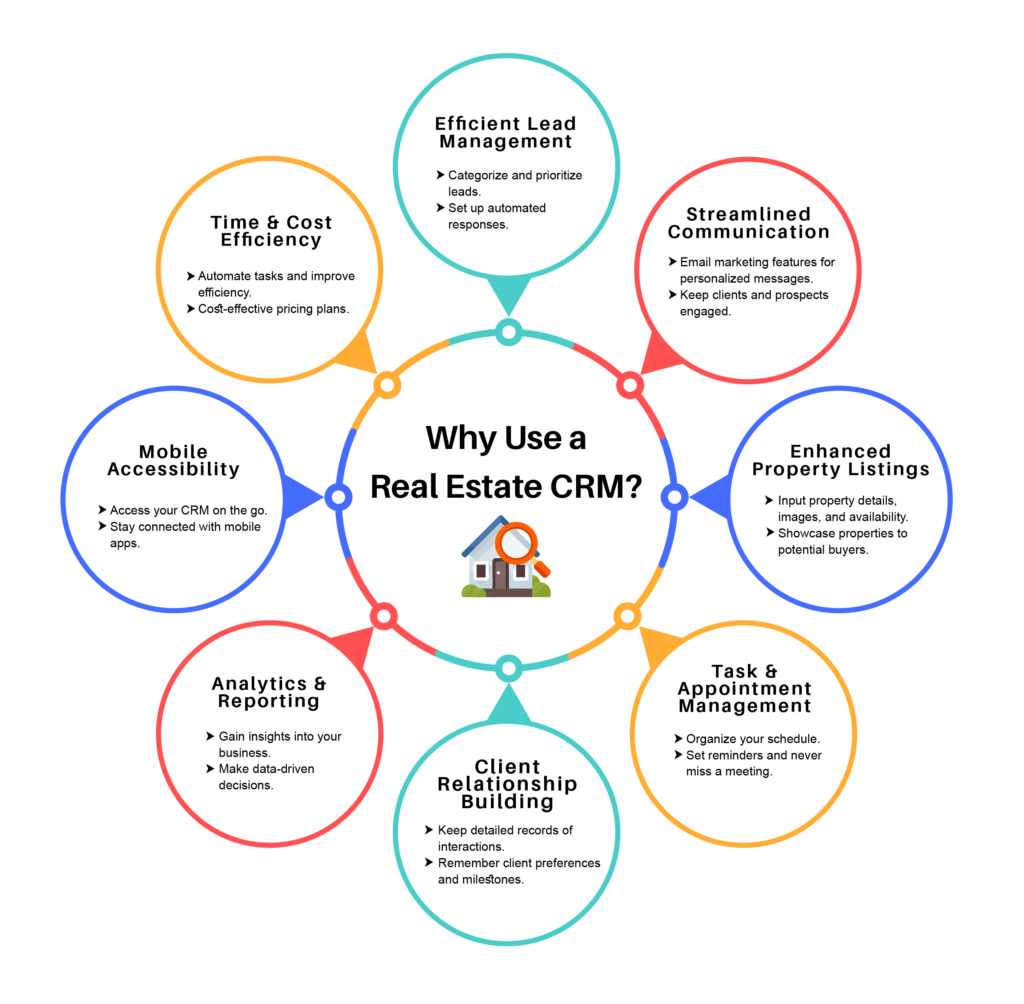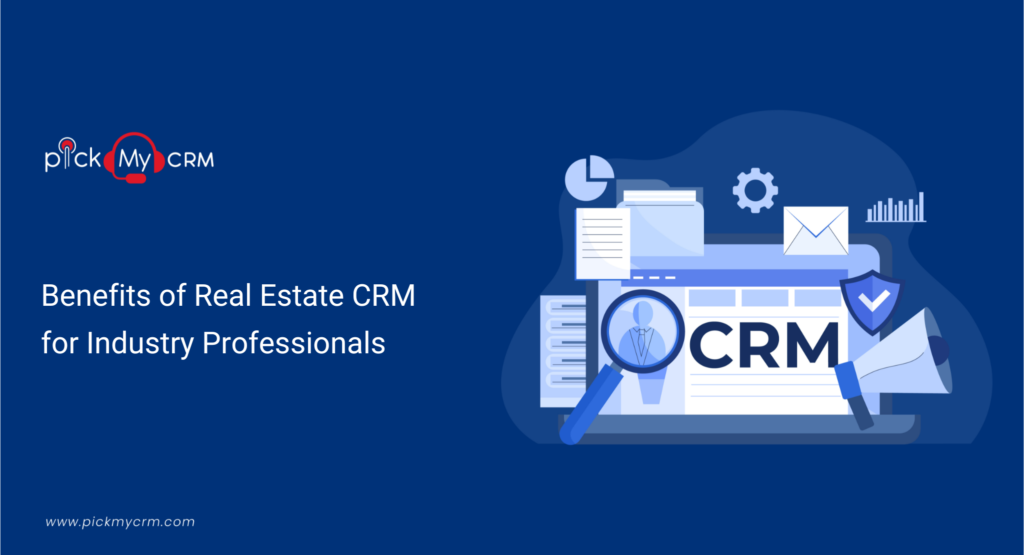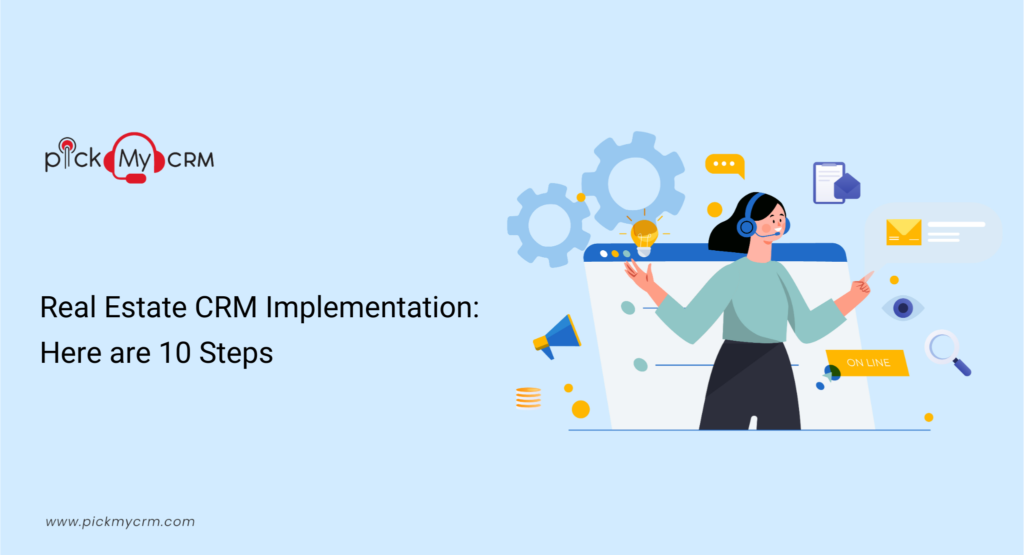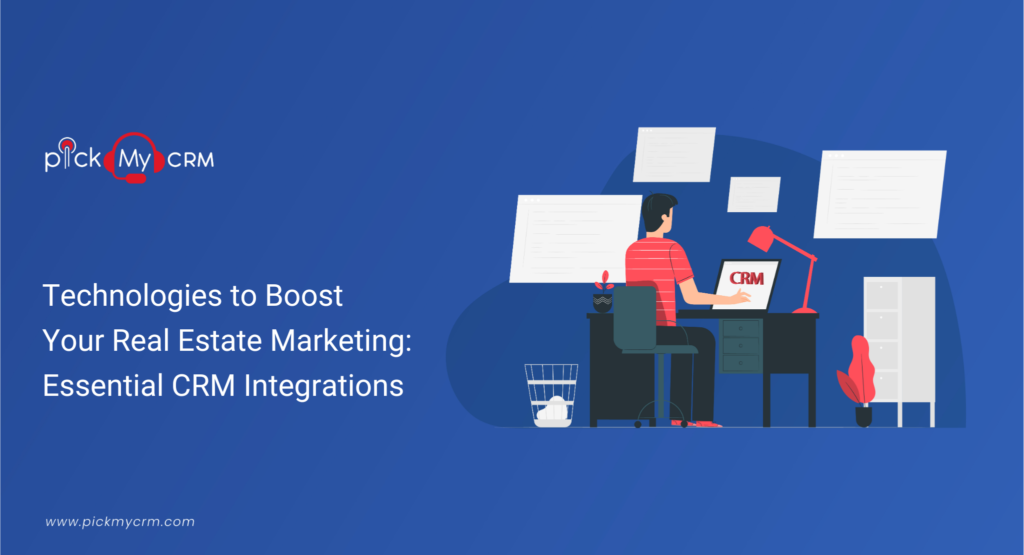What is Real Estate CRM? Streamlining the Future of Property Management

Recent Stats and News
Before we delve deeper into the Realm of Real Estate CRM, let's first examine some recent statistics and news that underscore the increasing importance of this technology within the real estate industry. According to a report published byReal Estate Industry Authority>, the adoption of Real Estate CRM systems has surged by 30% in the past year alone. This surge can continually raise the complexity of real estate transactions and the demand for more efficient processes.
Moreover,
Real Estate News Outlet> reported that real estate professionals who embraced CRM technology witnessed a 25% increase in lead conversion rates compared to those still relying on traditional methods. Real Estate CRM is becoming a game-changer in the industry.
Now, let's dive into the core aspects of Real Estate CRMs, exploring various subtopics to provide a comprehensive understanding.

What is Real Estate CRM?
A Real Estate CRM is a software solution that revolutionizes property management by consolidating client data, property listings, and transactions into one accessible platform. In the dynamic landscape of 2023's real estate market, this technology enhances efficiency, strengthens client relationships, and enables timely decision-making for agents and agencies.What does CRM mean in real estate?
Real estate CRM, indeed, in the field of real estate, is an abbreviation for Customer Relationship Management. Real estate professionals employ strategies, methodologies, and technology to oversee and cultivate connections with clients and potential leads. Moreover, a real estate customer relationship management system aids in organizing and centralizing client data, tracking interactions, automating tasks, and furnishing tools for effective communication and marketing. Ultimately, the goal of Customer Relationship Management in real estate is to enhance client satisfaction, improve lead management, and drive business growth through personalized and efficient relationship management.How a Real Estate CRM Works
A Real Estate CRM (Customer Relationship Management) system is a sophisticated software tool designed to streamline and enhance the operations of real estate professionals, including agents, brokers, and property managers. Here's how a Real Estate CRM typically works,Data Collection and Storage
The CRM starts by collecting and storing critical Data related to clients, prospects, properties, and transactions. This information includes contact details, property listings, transaction histories, and communication records.Contact Management
Real Estate CRMs allow users to create and manage detailed profiles for each contact, including names, addresses, phone numbers, email addresses, and other relevant information. These profiles serve as a central repository for all client and prospect data.Lead Tracking
Upon the Generation of a new lead, the CRM captures their information and allocates a distinct identifier. It subsequently monitors the lead's progression through multiple stages, Commencing from initial contact to eventual conversion. Additionally, the CRM furnishes tools for scoring and prioritizing leads based on their potential.Property Listings Made Easy
Property listings often involve complex data. Real Estate CRM simplifies this process, allowing you to input property details, including location, size, price, and status. Whether a property is available, under contract, or sold, ensure the CRM you're well-informed. Updates are seamless, ensuring you always have access to the most current information.Communication Automation
One of the core functions of a Real Estate CRM is automating communication. It can send automated emails, reminders, and notifications to clients and leads at predetermined intervals. Guaranteeing that follow-ups are not overlooked and maintaining consistent communication.Task and Calendar Management
CRM often includes tools for scheduling and managing tasks and appointments. Agents can set reminders for important deadlines, view their schedules, and stay organized.Transaction Management
Real estate transactions involve numerous steps and documents. A CRM can help organize and track each transaction's progress, including contract deadlines, inspections, and financing details.Reporting and Analytics
Most Real Estate CRMs offer reporting and analytics features. Users can generate reports on various aspects of their business, such as sales performance, lead conversion rates, and marketing campaign effectiveness. These valuable insights facilitate the process of making informed, data-driven decisions.Integration with Other Tools
CRM can integrate with other software and platforms used in the real estate industry, such as MLS (Multiple Listing Service) systems, email marketing software, and accounting tools. Integration removes the need for Manual data entry and ensures data consistency across different platforms.Mobile Accessibility
Many modern Real Estate CRMs provide mobile apps or responsive web interfaces. It allows agents to access their CRM data, respond to inquiries, and manage tasks while on the go.Insights at Your Fingertips
In today's data-driven world, insights matter. Real Estate CRM provides you with reporting and analytics features. Measure your sales performance, track marketing campaign effectiveness, and make informed decisions based on real-time data. The Real Estate CRM Serves as an all-encompassing hub for overseeing client relationships, property listings, transactions, and communications. It automates tasks, provides valuable insights, and improves overall efficiency for real estate professionals, helping them succeed in a competitive industry.
Key Features of a Real Estate CRM
Key features of a Real Estate CRM include lead management for efficient client acquisition, transaction tracking to streamline property sales, and automated communication tools for personalized client interactions. Additionally, reporting and analytics provide valuable insights for informed decision-making.Benefits of Using a Real Estate CRM
Here are some benefits of using a Real Estate CRM,- Organization: Centralizes client data and transaction details for better organization.
- Lead Management: Efficiently captures, categorizes, and nurtures leads.
- Efficient Communication: Provides email templates and automation for client communication.
- Streamlined Transactions: Tracks transaction progress and important dates.
- Client Relationship Management: Helps build and maintain strong client relationships.
- Mobile Accessibility: Allows access to information on the go.
- Scalability: Adapts to the size and needs of your real estate business.
- Compliance and Security: Ensures data security and compliance with regulations.
- Cost Savings: Leads to increased efficiency and profitability over time.
Types of Real Estate CRM
- Residential Real Estate CRM: Focuses on lead generation, listings, and client management for home buyers and sellers.
- Commercial Real Estate CRM: Handles complex commercial transactions, leasing, and tenant management.
- Property Management CRM: Manages tenant relations, maintenance, leases, and financial aspects of rental properties.
- Builder and Developer CRM: Supports land acquisitions, project tracking, and customer relations for new developments.
- Real Estate Investor: Assists in property research, deal analysis, and portfolio management for individual investors.
- Investment: Focuses on portfolio management and financial analysis for investors and property management firms.
- Commercial Leasing CRM: Assists commercial leasing brokers in property marketing, lease negotiations, and tenant management.
The Best Real Estate CRM of 2023
LionDesk - Best Overall Real Estate CRM
LionDesk, the top choice for real estate pros, excels in core functions and offers exclusive add-ons. Enjoy a Comprehensive 30-day free trial, with prompt customer support and innovative features like video messaging and AI assistant, Gabby. LionDesk Score: 4.9 Pros of LionDesk- User-Friendly: LionDesk offers an intuitive interface right from the start.
- Effective Mass Communication: It boasts excellent mass communication tools, including bulk text messaging.
- Customizable Lead Profiles: Tailor lead profiles to your specific needs.
- AI Lead Follow-Up: LionDesk introduces AI-driven lead follow-up, a feature that adds a personal touch to automated responses.
- Integrated Dialer: Enjoy the convenience of an integrated dialer for click-to-call functionality.
- Cluttered Dashboard: The wealth of options can lead to a cluttered dashboard.
- Transaction Management: Transaction management features are relatively basic.
- Not Ideal for Scaling Teams: LionDesk may not be the best choice for scaling teams or brokerages.
Why Choose LionDesk
Basic CRM Package- Monthly Price: $39
- Annual Price (Billed Annually): $25 per month
- Abundant monthly email, text, and video text credits.
- Bulk texting, marketing campaigns, Text2Sell, and white-label email domains.
- Option to add the landing page feature for an additional $29 per month.
- Monthly Price: $139
- Annual Price (Billed Annually): $83 per month
- LionDesk delivers exceptional affordability and value.
- Suitable for both seasoned agents and newcomers to the real estate industry.
Is LionDesk Right for You?
If you're looking for a CRM that combines sophisticated automation, video texting and email options, landing pages, and AI responsiveness, LionDesk is an excellent choice. Their 30-day full-featured trial ensures you can explore its capabilities before committing. Whether you're an experienced agent or just starting your real estate journey, LionDesk provides a stellar option.Top Producer - Best Lead Nurturing CRM
Top Producer, a seasoned contender in the real estate CRM field, maintains its innovation, remaining a prime selection for contemporary real estate experts. A highlight is its direct MLS integration, granting access to an extensive database with nearly 300 data points per property, setting it apart from standard IDX feeds. Top Producer Score: 4.0 Pros of Top Producer- Exceptional Integration: Top Producer stands out with seamless integration into hundreds of third-party platforms.
- Effective Transaction Management: It excels in transaction management features.
- Automated Communication: Communication options are highly effective and integrate seamlessly with MLS data.
- Lead Routing Tool: FiveStreet, a lead routing tool, is a must-have for teams or agents with high lead volumes.
- 12-Month Contract: A 12-month commitment is required.
- No Automated SMS: Automated SMS texting is notably absent.
- Website Not Included: Websites are not part of the base plans, requiring an additional investment.
Why Choose Top Producer
- Three tiers are available with options for teams.
- Pricing varies based on the chosen plan and billing frequency.
- Starting at $109 Per user monthly.
- Extra costs for add-ons like websites and the FiveStreet lead routing tool.
- Social Connect, the social media lead generation service, is priced at $359 per month, Inclusive of CRM costs.
Is Top Producer Right for You?
If you aspire to deliver market-level data to your contacts through MLS integration or require advanced lead routing for your team, Top Producer is worth considering. It's especially suitable for agents with experience and a budget for leads.Sierra Interactive - Best CRM-Website Integration
Sierra Interactive is the ideal CRM for scalability, seamlessly integrating with a real estate website builder and providing top-notch lead conversion tools. It's an all-in-one sales ecosystem, rare in the industry. Sierra Interactive's advanced websites excel at attracting and nurturing leads through deep CRM integration. Pros of Sierra Interactive- Powerful Capabilities: Sierra Interactive boasts robust capabilities and strong analytics.
- Integrated AI: It includes integrated AI features.
- Expertly Designed Websites: Sierra Interactive's websites are crafted, presenting a polished online presence.
- Higher Pricing: Sierra Interactive's pricing is relatively high, with the CRM alone costing $299 per month.
- Limited Customizations: Websites have limited customization options.
- Not Ideal for New Agents: It might not be the optimal choice for novice agents.
Why Choose Sierra Interactive
- Comprehensive CRM + Website package starts at $500 per month.
- Setup fees range from $250 to $500.
- Designed for agents seeking an all-in-one platform for their real estate businesses.



